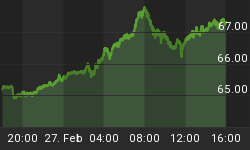European debt problems have become the center of market attention. However, it is only a matter of time until markets turn their focus to the financial problems of larger countries such as the United Kingdom, Japan and the United States.
Last week, the US Government reported its largest budget deficit ever for the month of April at $86.2 billion, which when annualized surpasses one trillion dollars. Since April is the highest revenue-generating month for the US (Figure 1), an annualized deficit of one trillion dollars is astonishing. Outlays during April 2010 reached a record at $327.96 billion, up from $287.11 billion in April 2009. This contrasts with receipts of $245.27 billion, a decline from the April 2009 level of $266.21 billion.
Figure 1. Average Monthly Tax Receipts excluding April vs. April ($millions)
Source: Treasury Department, Continental Capital Advisors
The April deficits in 2009 and 2010 were the first back-to-back April deficits since 1963 and 1964 (Figure 2).
Figure 2. April Budget Deficits vs. Surplus since 1981 ($millions)
Source: Treasury Department, Continental Capital Advisors
The headwinds facing the US Government's finances are significant. Not only has the US Government recorded its 19th consecutive monthly deficits, but also it has the shortest maturity of debt of all advanced economies (Figure 3).
Figure 3. Advanced Economies Gross Financing Needs, 2010 (In percent of GDP, unless otherwise specified)
The estimates in Figure 3 assume a modest GDP growth rate that is far from certain, given recent market turmoil and deflationary pressures stemming from austerity measures in Europe and the rising US dollar. As a result, debt/GDP levels will worsen should the US economy shrink. Despite this possibility, most investors are only focused on the financial problems of Europe. As a result, the US dollar and US Treasuries are benefitting from what is characterized as a flight to safety. However, these inflows are simply the result of investors selling financial assets around the world. Ultimately, the market will question the US, as it has with parts of Europe, and the investments that are currently considered safe will be deemed risky.















